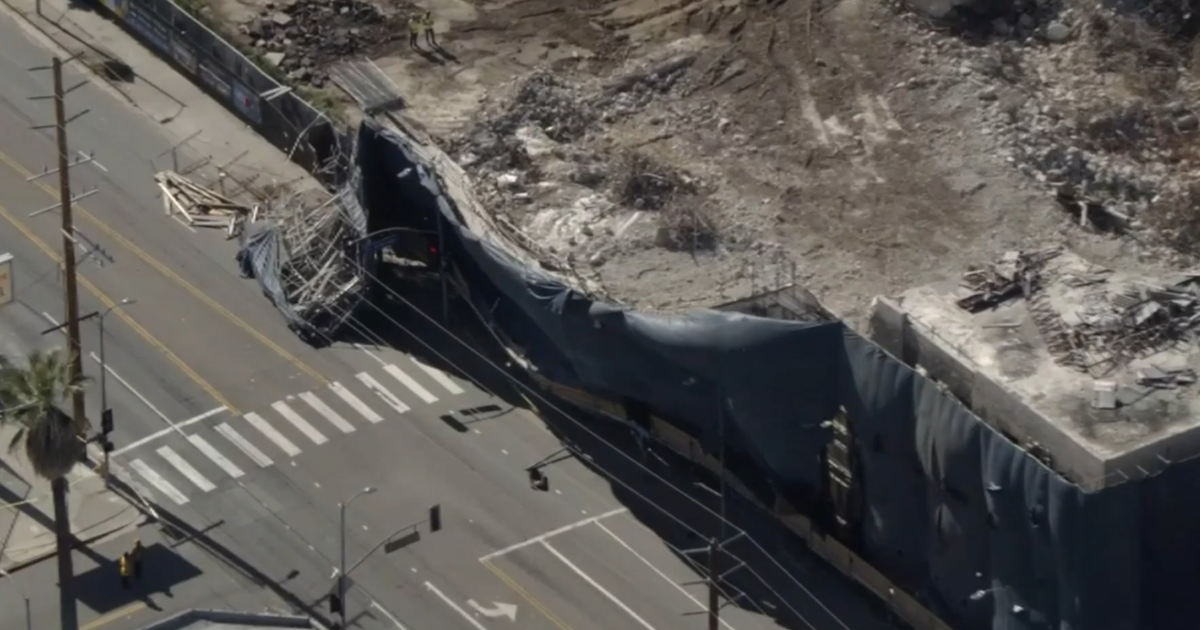Here are the major sticking points preventing a deal between Hollywood studios and writers
We are three days into the first Hollywood strike in 15 years which has brought the film and TV industry to a grinding halt, after writers and studios failed to reach an equally-favorable deal.
The Writers Guild of America and its 11,500 members said that they are fighting for the continued existence of their professions, claiming streaming and artificial intelligence threaten to push people out of a job.
However, the studios and their representative, the Alliance of Motion Picture and Television Producers, claim that it has extended a "generous" offer to writers and is willing to improve it — something that the WGA vehemently disputed, claiming it is "wholly insufficient."
Here are some of the major sticking points stopping the two sides from striking a deal:
Mandatory Staffing
One of WGA's demands that the AMPTP has taken issue with is the requirement to staff a certain number of writers for a given project.
"These proposals require studios to staff a show with a certain number of writers who will be hired a specified period of time that may not align with the creative process," the AMPTP said in a statement. "If writing needs to be done, writers are hired but these proposals require the employment of writers whether they're needed for the creative process or not."
According to the WGA proposal labeled "preserving the writers' room", the union is calling for a minimum of six writers during the pre-greenlight process, including four writer-producers. If a project is picked up from the studios, the WGA asked for:
- One writer per episode up to six episodes then an additional writer is required for each two episodes until hitting the max of 12 writers.
In essence, if a greenlit project has eight episodes there will be seven writers, including four writer-producers.
"While the WGA has argued that the proposal is necessary to 'preserve the writers' room,' it is in reality a hiring quota that is compatible with the creative nature of the industry," AMPTP said in response. "We don't agree with applying a one-size-fits-all solution to shows that are unique and different in their approach to creative staffing."
In hopes of stopping the creation of a "gig economy," writers also called for a minimum of guaranteed employment of at least 10 consecutive weeks of work for pre-greenlit projects. For projects picked up by the studios staffed writers must get at least three weeks per episode, until the maximum of 52 weeks. Additionally, half of the minimum staff must continue to be staffed through production while only one writer must be employed through post-production.
Both of these proposals were flat-out rejected by AMPTP, according to the WGA.
"From their refusal to guarantee any level of weekly employment in episodic television, to the creation of a "day rate" in comedy variety, to their stonewalling on free work for screenwriters and on AI for all writers, they have closed the door on their labor force and opened the door to writing as an entirely freelance profession. No such deal could ever be contemplated by this membership," the WGA stated on Monday.
In response, AMPTP said in part:
"...Employment as a writer has almost nothing in common with standard "gigs" jobs. For one thing, most television writers are employed on a weekly or episodic basis, with a guarantee of a specified number of weeks or episodes. It's not uncommon for writers to be guaranteed 'all episodes produced.' "
Better Residuals and Pay
As the industry continues to shift to streaming services, writers have seen their residuals, the foundation of their professions, drop in comparison to productions that debuted in theaters and broadcasts.
"Writers are making 23% less than we were 10 years ago, while the companies are making record profits — and that's what we're looking to address," said WGA negotiating team committee member Adam Conover in an interview in April.
Conover continued and added that writers are put in unfair situations and compared the residuals made between movies that debuted in theaters and streaming platforms.
"If you write a movie for theatrical, where they put it in the movie theaters," said Conover. "If you write the very same movie for streaming, you are paid far, far less in residuals — and residuals are how writers make our year in between our jobs. A movie is a movie either way."
RELATED: WGA writers strike enters 3rd day in Hollywood
According to the union, its latest contract proposal would net writers roughly $429 million in residuals per year, while the studios' latest offer would equate to about $86 million annually. The AMPTP claimed that the two sides agreed to a 46% increase in residuals for streaming programs during the last contract negotiation in 2020. They said it only started taking effect in 2022 and believe many writers are only starting to see the increases in their payments.
The studios said that under the current residuals agreement, a one-hour series produced for Netflix or Amazon Prime Video would net $72,000 for one episode over three years, or about $24,000 a year. Over seven years, the estimated residual payout would be $114,000 or about $16,290 a year.
The AMPTP said they upped the amounts in their most recent offer but did not specify.
Additionally, the WGA argued for increases to the minimum pay for writers. The studios claimed it offered the "highest first-year increase offered to the WGA in more than 25 years."
In the proposal comparison released by the WGA, writers are asking for a three-year minimum increase of 16%, broken down by 6%, 5% and 5%, in the respective years. The AMPTP offered a 9% overall increase with 4% in the first year and dropping by a 1% in each consecutive year. Additionally, the studios offered a one-time increase to most residual bases of 2% or 2.5%.
These increases come as the industry faces budget constraints, with Disney laying off nearly 4,000 workers in total.
AI Protections
Finally, the WGA called for protections against the rapidly-developing technology surrounding artificial intelligence.
Their proposal states the studios "Regulate use of artificial intelligence on MBAcovered projects: AI can't write or rewrite literary material; can't be used as source material; and MBA-covered material can't be used to train AI."
The proposal was rejected by AMPTP. Studios countered with the offer of "annual meetings to discuss advancements in technology."
Mark Harris, author of multiple books on American film history and husband of acclaimed playwright and WGA member Tony Kushner, said it's reasonable for screenwriters to fear that studios might one day outsource some of their work to machines.
"The producers' response is, 'We won't give an inch on the possibility of replacing you with AI, but we'll be happy to give you a yearly update on how that's going,'"he told CBS MoneyWatch.
The AMPTP responded by saying the use of the technology is a complicated issue and that they are committed to having a discussion about AI. In their statement, they used the example of a writer using AI to assist their creative process and noted that the agreement already prevents AI-generated material from garnering a writing credit, claiming only a "person can be considered a writer and enjoy the terms and conditions of the Basic Agreement."
"We're creative companies and we value the work of creatives. The best stories are original, insightful and often come from people's own experiences. AI raises hard, important creative and legal questions for everyone," AMPTP said in a statement.
EDITOR'S NOTE: Many KCAL News producers and writers are WGA members. However, they are on a separate contract. Paramount Global, which owns CBS and KCAL News, is part of the AMPTP.




